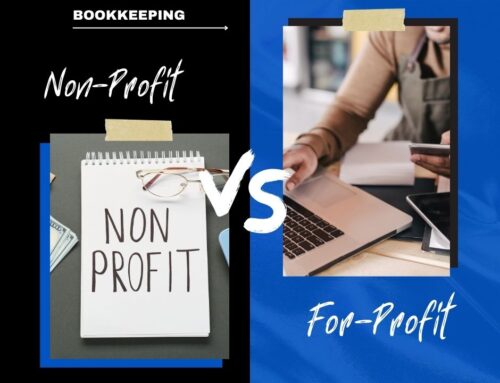The accounting method used by your business will determine how you show profits each year.
This has a direct impact on your income taxes and could also affect your ability to get a loan or secure investments. That’s why deciding between cash and accrual accounting is an important decision for any small business owner.
Here’s another factor that you need to keep in mind when choosing your accounting method. You can’t just change your mind whenever you feel like it from year to year.
When you choose between cash and accrual accounting, you’ll need to stick with that decision for the long term. Although I’ll show you how to change methods later.
In this guide, I’ll explain the differences between these two accounting methods so you can determine what’s best for your small business.
Differences Between Cash Accounting and Accrual Accounting
What’s the difference between cash and accrual accounting? I get this question all the time.
Let’s start with the basics. Both cash and accrual are accounting methods. Your accounting method dictates when to report transactions on your financial documents. There is a simple way to remember the difference between the two.
With the cash method, you record transactions when cash changes hands.
With accrual accounting, you report income when it’s earned and expenses when they incur, regardless of when cash changes hands.
Here’s an example to show you what I mean. Let’s say you sell a product on December 20th and the customer pays you for the full amount of $700 on January 20th.
If you use cash accounting, you’ll report the income on January 20th, and it goes toward your taxes for the new year. If you use accrual accounting, you’ll record the $700 on December 20th, and it’s taxed for the previous year even though you didn’t receive the money yet.
Pros and Cons of Cash vs. Accrual Accounting
To be clear, your accounting method doesn’t impact how much money you make or how much you lose. All it does is impact when the transactions get recorded.
With that said, your method could potentially impact your taxes.
At times, cash vs. accrual accounting can slightly increase or decrease your taxes in a given year. However, the difference is usually offset the following year.
Cash Method Advantages
Simplicity is the biggest advantage of cash accounting. All you must do is look at your checkbook and sales receipts to calculate profits and losses. The date of the transaction is the date it gets recorded.
Another great benefit of cash accounting is that you always know how much cash you have on hand at a given time.
Cash Method Downsides
The downside of cash accounting is that it’s not as accurate.
You could receive payment from a customer in August for work performed in January. While this won’t change your annual earnings, it can make it more difficult to forecast how much cash you’ll have and when your busiest times are.
Theoretically, a month where you did no work could be the same month where you made the most money.
Accrual Method Advantages
Accrual accounting increases the accuracy of profits and losses in terms of when work was performed.
Let’s say you had to pay a large invoice for something that took place over the period of a few months. Accrual accounting will split the transaction up over that period of time.
Accrual Method Downsides
The biggest downside to accrual accounting is that it takes more time and effort to figure out when and how transactions should be recorded.
You’ll also have to keep separate cash flow statements to know how much cash you actually have on hand at a given time.
How to Choose Between Cash and Accrual Accounting
For the most part, you have the freedom to choose either accounting method. In my experience, most small business owners choose cash accounting because of its simplicity.
You’ll want to use the accrual method if you plan to raise funds from outside investors. Investors usually like to see accrual accounting because it gives them a big-picture perspective of a company’s financial records.
With that said, there are certain scenarios where businesses must use accrual accounting:
- Your company holds inventory and has gross receipts that exceed $1 million annually.
- The average annual gross receipts over three years is more than $5 million.
- You own a C corporation that’s publicly traded and needs to follow GAAP (generally accepted accounting principles).
If you fall into any of these three categories, you need to choose the accrual method.
How to Change Accounting Methods
You are not allowed to freely change accounting methods for the purpose of avoiding taxes. Once you’ve filed taxes under one of these accounting methods, you need to stick with it.
However, you can change methods by requesting an approval from the IRS.
If the change is approved, you’ll still have to pay any taxes due if the change adjusts your taxable income for that year. With that said, if the change results in you owing less taxes, you’ll be entitled to a tax credit as well.
For those of you who want to change your accounting method, you’ll need to file Form 3115 with the IRS to make a request.
Conclusion
It’s easy to distinguish the differences between cash accounting and accrual accounting. Both methods have their pros and cons.
If you’re unsure which method is best for your business, use this guide to help you decide. Just be careful, certain businesses are required to use accrual accounting.
For those of you who need some additional help with your accounting process, consider outsourced bookkeeping services.
A professional bookkeeper can give you added insight into which accounting method is best for your business. They will also be able to properly record your transactions, regardless of which method you’re using.





